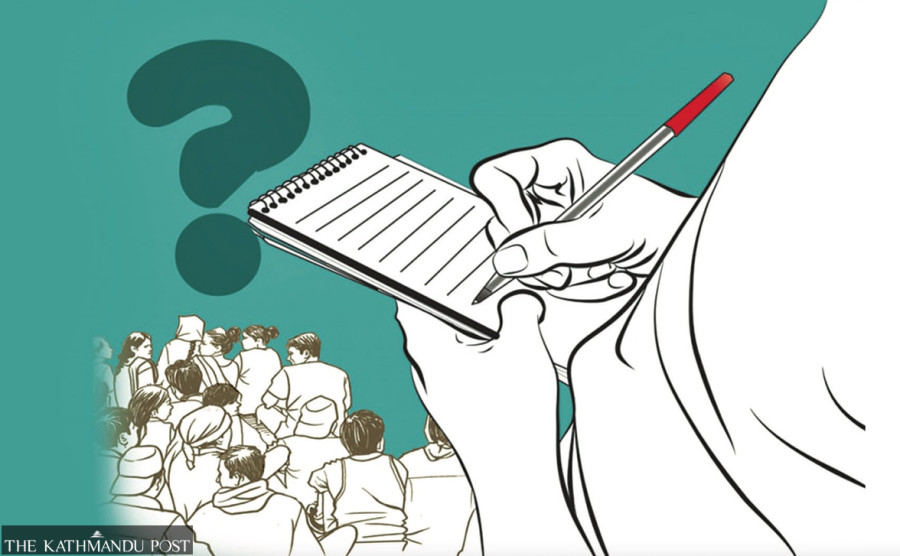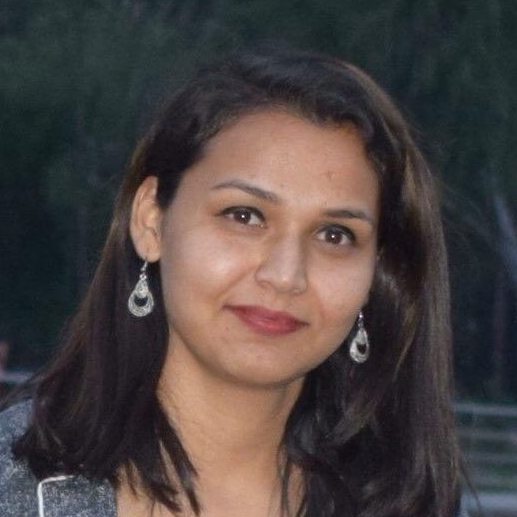National
Dalits living in rented homes hesitant to reveal caste during census
Enumerators say they found many families who were not keen to disclose their last names fearing eviction.
Prakriti Dahal
When a census team arrived at his residence in Baneshwar last month to collect details from him and his family members, Laxman Lal (name changed) was hesitant.
Of all the details, one particular thing Laxman did not want to reveal was the family name, or the caste (jaat in Nepali).
“I am a Dalit,” the 41-year-old said. “I am afraid that I will be asked to vacate the room if I reveal my surname.”
According to him, there are many Dalits in Kathmandu living in rented accommodations who fear they could be removed from their rooms and apartments if their landlords’ found out their surnames.
“They usually don’t disclose their last names or they use something else as their surnames, like those which are considered ‘upper caste’,” Laxman said.
For the fear of being evicted by his landlords, Laxman provided wrong details of all five of his family members, who have been living in Baneshwar for the last six years, to the enumerators.
“There is no option. To be honest, we lied about our last name when we sought accommodation in this house,” he said.
Sabita (also not her true name) has been living in Kirtipur for the last six years. The 44-year-old, who hails from Biratnagar, said her house owner knows her family as “kshetris”, one of the groups of “higher” castes in Nepal.
"There are four of us," she said. “We have not revealed our actual caste before the house owner, so we did not tell the enumerators also.”
The national census was conducted from November 11 to November 25.
Enumerators say such a tendency of lying about castes by the Dalits was more common in urban areas.
For decades, Nepal has struggled to abolish caste-based discrimination and untouchability. When the Civil Act 1963 was introduced, its biggest focus was to make caste-based discrimination a punishable offence. The Untouchability and Discrimination Act, promulgated in 2011, and the Constitution of Nepal both provide clear protections for Dalits.
Despite these legal provisions, acts of violence against Dalits have continued across the country. Occasionally, these incidents have even escalated into murder.
In May last year, Nabaraj BK and his five friends were killed and dumped into the Bheri river in Rukum (West) by a group of people from the so-called upper caste. BK had fallen in love with an ‘upper caste’ girl and her family was extremely unhappy that the boy was a Dalit.
Cases of discrimination rarely get to court and when they do reach the court, justice delivery is delayed. Even if they result in convictions, the offenders are given small fines or minimal jail time of a few months.
The trial for the Rukum (West) mass murder is still underway, more than a year since the incident.
The practice of caste-discrimination is so rife in the country that Dalits still continue to face problems when it comes to finding accommodations.
Bikas Khadka, an enumerator, said the reluctance to reveal surnames could hugely mirserepsent the Dalit community in the final census report.
"In around 200 houses that I visited, we found Dalits to have been using surnames like Risal, Ghimire, Sharma and Sapkota, among others," he said.
Khadka, who was deployed in the Kalanki area for census data collection, said one of the families initially said their surname was ‘Sharma’ and later asked it to be changed to ‘Tamang’.
“But the daughter in the family suggested they belonged to the Dalit community,” Khadka said.
Khadka said he entered the surname that the family head told him.
Another enumerator deployed in the Kuleshwar area said she also faced problems while collecting details from the households as there were many families that did not want to reveal their surnames.
She visited around 250 houses in the area, she said.
"When asked about their surnames, they would say ‘just write the names, why do you need our caste,” she said. “When I tried to convince them that they should disclose their last names, some families said the society thinks lowly of them if they say they are Dalits.”
Some Dalit families, according to enumerators, however, revealed their surnames in private when the house owners were not around.
In the 2011 Census, Dalits numbered 3,499,497, which is 13.12 percent of the country’s total population.
In June, Rupa Sunar, a resident of Tanahun district currently working in the media sector in Kathmandu, had accused a woman of Babarmahal, Kathmandu of caste-based discrimination by refusing to rent out her house.
The issue made national headlines after the landlord was taken into police custody after Sunar filed a case on June 17.
The police released the house owner from custody on June 23 after the Kathmandu District Attorney’s Office said that investigation into the case was incomplete.
Rupa’s case highlighted the caste-based discrimination prevailing in the country, including in Kathmandu, the Capital.
Enumerators say the population of the Dalits on paper may go down if many families hide their real castes for fear of being discriminated against.
Sundar Purkuti, a member of the National Dalit Commission, said although there was no such problem in villages, the number of Dalits in the city could be reduced.
"We may not have the exact details because of the compulsion the Dalits in the urban areas face when it comes to revealing their true identity,” said Purkuti. “We had requested the Central Bureau of Statistics to ask the enumerators to collect details in confidentiality but it does not look like efforts were made.”
Bhakta Bishwakarma, acting chair of Dalit NGO Federation, said they had drawn the Central Bureau of Statistics’ attention to some issues ahead of the census.
"We submitted a recommendation that one should be allowed to write their last names. We had said that data should be collected by making a different column for caste where Dalits could be included as Bishwakarma, Mijar and Pariyar and so on. We had also requested the bureau to seek the ward offices’ help to count the number of Dalits in city areas.”
But neither the bureau nor the National Planning Commission paid heed to the suggestions, he said.
Hem Raj Regmi, deputy director general at the Central Bureau of Statistics, said that he does not think there has been any large-scale misrepresentation of Dalits only because they did not reveal their last names for the fear of getting evicted.
“Lately, people from Dalit and marginalised groups do not hesitate to say who they are, unlike in the past,” Regmi told the Post.
But he didn’t rule out the possibility of some Dalit hosueholds not disclosing their surnames.
According to him, the CBS guarantees privacy of respondents and enumerators were told not to seek any information that the responders might find sensitive.
“Certain respondents may have provided wrong information which we call ‘response bias.’ It happens in every study or census. Our job should be to minimise such response bias to the extent possible,” said Regmi.
(This story was originally published in Kantipur, the Post’s sister paper.)




 9.83°C Kathmandu
9.83°C Kathmandu














